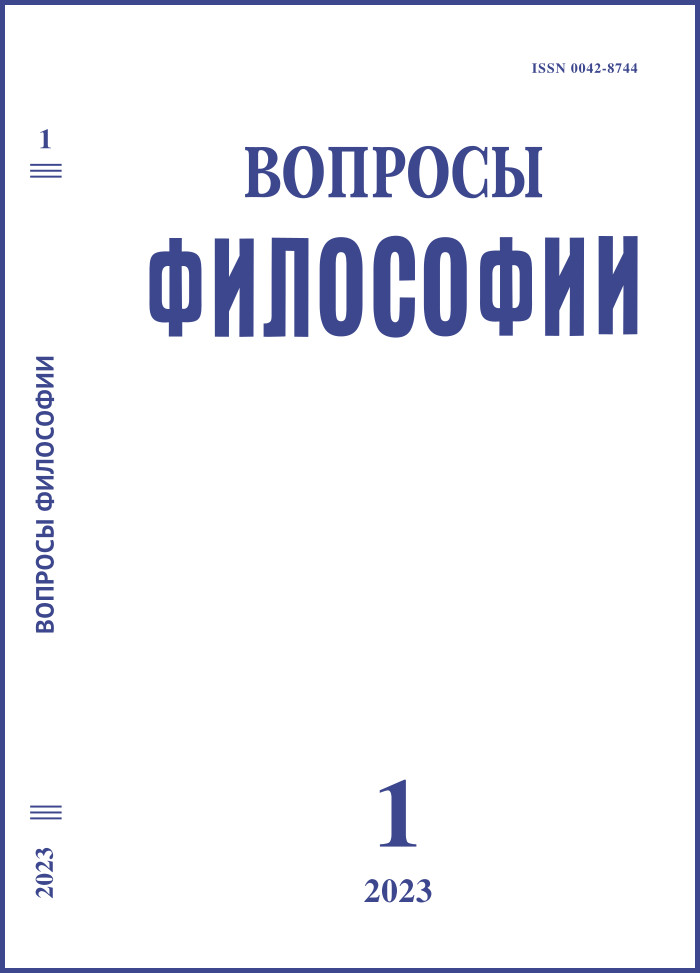Transformation of Scientific Objectivity and Scientific Self: Specificities of Ethical and Epistemological Regime of Digitalization
DOI:
https://doi.org/10.21146/0042-8744-2023-1-104-114Keywords:
scientific objectivity, scientific self, modern epistemology, scientific practices, visualization, digitalizationAbstract
The development in recent decades of empirical ways to investigate and describe science generates a change in the conceptual apparatus of epistemology, i.e. the content and functions of epistemic concepts, in particular, the concepts of objectivity and self. Scientific objectivity ceases to be understood as an abstract epistemic concept in modern epistemology. It begins to refer to specific historically varied practices, that a scientist must perform in order to be objective. The scientific self as a special kind of identity turns out to be historically practiced along with the scientific objectivity. A certain type of scientific self develops under the influence of certain scientific practices (in particular, practices of creating visual images) and practices of following a certain “epistemic virtue” (in particular, objectivity). There are, various visualization methods (use of diagrams, maps, photographs, compilation of atlases) become one of the fundamental and integral parts of building scientific argumentation in modern scientific practices. The purpose of our research is an attempt to explicate a possible answer to the question of what is the past, present and possible future of scientific objectivity and scientific self in the era of digitalization.

